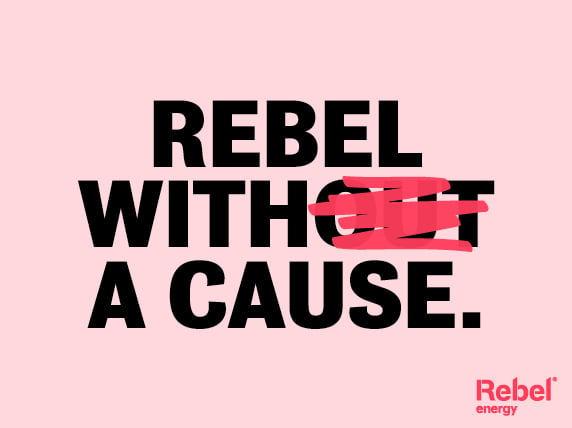Rebel Energy has raised 157% of its crowdfunding target in just seven days, with more than £220,000 raised.
The energy supplier start-up is set to launch into the UK market in the summer, and was looking to fund marketing and advertising in the run up.
As such it opened the crowdfunding round on 2 March, offering nearly 2.5% equity in the business on Crowdcube, with the intention of running the round for four weeks. Over 270 investors have already helped the company hit that target.
“We’re absolutely delighted with the support we’ve received from the Crowdcube community, both financially and otherwise. It’s particularly thrilling to see investors wholeheartedly engage with our mission to make renewable energy accessible to all” said Penelope Hope, CCO and co-founder at Rebel Energy.
This funds come on top of £700,000 already invested into Rebel Energy over the past year from both the founding team, a cornerstone investor in the US and a small group of private angel investors in the UK.
Speaking to Current±, the company said that it had “decided to also open it up to the crowd as we want to create a business which changes society in an impactful and sustainable away and allowing the community to own a piece of Rebel seemed like the next logical step”.
Rebel Energy is looking to tackle fuel poverty and provide renewable energy access to all strata of society, the company said. It is intending to use the Blue Prism cloud to help to automate its processes, reducing overheads as fewer people will be required for routine tasks than in conventional energy companies. This will create savings it can pass onto its customers, it said.
It will initially look to use renewable energy guarantee of origin certificates (REGOs), bought through a wholesaler to provide green energy. But as it scales it will move quickly into buying directly from generators through power purchase agreements (PPAs), as well as looking to generate its own electricity in the future it added.
“We are keen to explore how we can start to self-generate our own energy and as customers become equipped with renewables themselves, we will trade with customer and Rebel-generated energy,” the company continued in a statement.
Beyond this, Rebel Energy is looking to use next-generation credit checks to offer better tariffs to customers that can help improve their credit ratings. Its services will be underpinned by AI, and run from their customer service centre in Worksop, Nottinghamshire.
“This is the first time an energy company has gone to market with a joined-up social and environmental mandate, committing to affordable green energy tariffs for everyone,” said Dan Bates, CEO and co-founder at Rebel Energy.
“We’re setting out to show what an ethical and affordable energy supplier looks like in the UK, one that not only champions renewable energy but also helps address fuel poverty and protects the most vulnerable people in our society.”
The company will welcome a small number of customers in spring, before its full market launch. It was first announced in August 2020 by Bates – who worked at BP for 17 years previously – when the company initially partnered Blue Prism.
It has been a turbulent time for small energy suppliers in the UK, with a raft of companies going bust, in particular as they struggle with the high costs of operating in the UK market. In January, Green Network Energy and Simplicity Energy closed, following both having failed to make their renewable obligation payments – a failure seen of many of the companies to shut.
Since 2018 more than 20 suppliers having shuttered including a number in 2020, with Yorkshire Energy ceasing to trade in December, Tonik Energy in November, Effortless Energy in September, and GnERGY in March.
Speaking to Current±, Rebel Energy said that “while market conditions have been volatile, none of the companies that failed had robust risk management or control frameworks in place to mitigate against such conditions”.
The company is intending to focus on its customer proposition, ensuring its values help both attract and retain customers through its legally protected social mission. It will manage its risk and commodity costs, pointing to its experienced leadership team, and committing to hedge commodity exposures. Additionally, it is intending to put in place a robust financial and internal control framework to underpin good governance.
Current± caught up with Bates earlier this year to discuss how this business model will work, and the opportunity available in the market for a young energy company.






